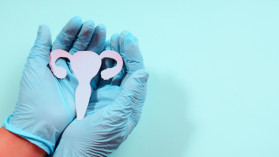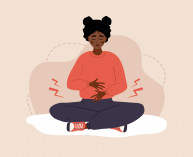Get Informed Topics Oky Kenya Period/Menstruation THE MENSTRUAL CYCLE
THE MENSTRUAL CYCLE
The menstrual cycle is a series of events that prepare the female body for a potential pregnancy each month.
Although menstruation tends to be most closely associated with vaginal bleeding, this is just the most visible of its phases.
The menstrual cycle consists of several phases. During the first phase, hormones stimulate the thickening of the uterine walls and the growth of several eggs inside the ovaries.
Only one of these eggs will reach full maturity and be released into one of the two fallopian tubes.
At this point, the second phase begins. During this phase, the egg begins its journey through the fallopian tube toward the uterus. The egg lives for only 24 to 48 hours.
During this time, if it meets with male sperm, the sperm have a chance to fertilize it.
Once the egg reaches the uterus, if it has been fertilized and manages to attach to the uterine wall, pregnancy begins.
If it hasn’t been fertilized, or if it doesn’t manage to attach to the uterine wall, it gets expelled from the body with the menstrual flow.
This is menstruation, also called menses—the final phase of the menstrual cycle. During this phase, the body releases both the egg and the material that thickened the uterine wall in preparation for pregnancy. And the cycle starts again.
How long is the menstrual cycle?
The menstrual cycle lasts an average of 28 days, but its length varies from woman to woman. A cycle can be as short as 20 days or as long as 36 days. In teenage girls, cycles can be even longer, up to 45 days.
To find out the length of your cycle, count the days between the first day of your period and the first day of your next period.
It is important to keep in mind that the length of the menstrual cycle can be quite unstable at first. It takes several months or even more than a year to stabilize.
How do I know that something is wrong with my menstrual cycle?
For some girls and women, the menstrual cycle doesn’t behave the way it should. If any of the following items are true for you, have a chat with your doctor to make sure everything is OK:
- You’re 15 years old, and you haven’t had a period yet.
- For no apparent reason, you don’t get your period for more than three months.
- All of a sudden your period becomes highly irregular, meaning that the length of your period keeps changing or you start skipping periods.
- You are bleeding for more than a week.
- You are bleeding so intensely that you need to change your pad or tampon every two hours or less.
- You are bleeding between periods.
- You experience intense pain during your period.
- You have a very short menstrual cycle (less than 20 days) or a very long one (more than 35 days).
Frequently Asked Questions
Male Body
1 questions
See frequently asked questions on Male Body
Let's Talk
Facts, tips, stories and common questions
Go to Forum






